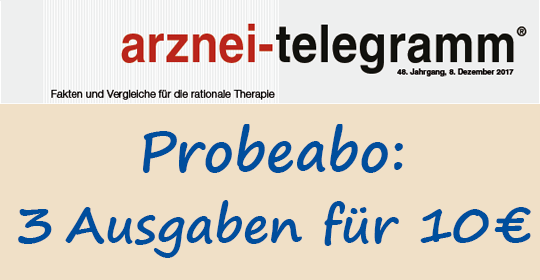Translation of a-t 2020; 51: 17-8
SPOT ON
SARS-COV-2: SHOULD YOU DISCONTINUE ACE INHIBITORS AND SARTANS?
Here in the editorial office we have received several queries about whether ACE inhibitors or angiotensin (AT) II blockers should be discontinued in light of the current SARS-CoV-2 pandemic and patients switched to other antihypertensive drugs. The background to this is hypotheses that both of these medicinal product classes can both increase the risk of an infection with the novel coronavirus and worsen the progression of the disease (e.g. 1,2). These assumptions come from the observation that SARS-CoV-2 (like the SARS coronavirus (SARS-CoV) which triggered the 2003 SARS** epidemic) infects cells by means of the enzyme ACE2, which is closely related to the Angiotensin-Converting Enzyme (ACE) (1-3). In some animal tests (e.g. 4,5), ACE inhibitors and AT II inhibitors increase the gene expression of cardiac ACE2, but not (e.g. 6) in others (7). There are also those citing the fact that the most common pre-existing diseases documented in observational studies on Chinese patients with severe or fatal COVID-19 progression - hypertension, diabetes, coronary heart disease and cerebrovascular disease - are often treated with ACE inhibitors, albeit the medication used in those cases was not analysed (2).
On the other hand, however, it is also known that ACE2 expression protects against damage to the lungs by converting angiotensin II, which can lead to lung damage up to and including pulmonary oedema by stimulating AT1 receptors, into angiotensin 1-7 (3,7,8). The SARS virus itself is thought to downregulate ACE2, which could encourage the development of Severe Acute Respiratory Syndrome (3, 8). There are also hypotheses that AT II blockers such as losartan may decrease lung damage caused by SARS-CoV-2 (7, 8), and this has been demonstrated in animal tests for SARS (9). A clinical study with losartan in patients with a proven SARS-CoV-2 infection but only mild symptoms is in preparation (10).
According to a current opinion by the European Society of Cardiology (ESC), the speculation that ACE inhibitors or sartans can have a negative impact on the infection risk and severity of the progression of COVID-19 is lacking in sound scientific basis at present. The ESC therefore highly recommends continuing existing antihypertensive treatment with an ACE inhibitor or an AT II blocker unchanged (11). This is also the assessment and recommendation of nine further European and international expert associations (7).
In light of the fact that the data for the hypothesis of a possible harmful effect of ACE inhibitors and AT II blockers on infections with and suffering from SARS-CoV-2 are contradictory and the fact that there is a total lack of clinical trials, we advise against switching to another antihypertensive drug. This would trigger a large number of additional patient contacts in already overloaded practices, which is thoroughly counterproductive at this time. Patients with heart failure can in any case not go without ACE inhibitors and sartans, -Ed.
| 1 | ZHENG, Y.-Y. et al.: Nat. Rev. Cardiol., publ. online 5 March 2020, doi: 10.1038/s41569-020-0360-5 (2 pages); http://www.a-turl.de/?k=rabf |
| 2 | FANG, L. et al.: Lancet Respir. Med., publ. online 11 March 2020, doi: 10.1016/S2213-2600(20)30116-8 (1 page); http://www.a-turl.de/?k=udor |
| 3 | HOFFMANN, M. et al.: Cell, publ. online 4 March 2020 (19 pages); http://www.a-turl.de/?k=reyd |
| 4 | ISHIYAMA, Y. et al.: Hypertension 2004; 43: 970-6 |
| 5 | FERRARIO, C.M. et al.: Circulation 2005; 111: 2605-10 |
| 6 | BURCHILL, L.J. et al.: Clin. Sci. (Lond.) 2012; 123: 649-58 |
| 7 | SPARKS, M.A. et al.: The Coronavirus Conundrum: ACE2 and Hypertension Edition. NephJC, 17 March 2020; http://www.a-turl.de/?k=udwa |
| 8 | GURWITZ, D.: Drug Dev. Res., publ. online 4 March 2020; doi: 10.1002/ddr.21656 (4 pages) |
| 9 | KUBA, K. et al.: Nat. Med. 2005; 11: 875-9 |
| 10 | CARLSON, J.: Star Tribune, 13 March 2020; http://www.a-turl.de/?k=ulsb |
| 11 | ESC: press release 13 March 2020; http://www.a-turl.de/?k=ille |
| * | Previous version published on 18 March 2020 as a blitz-a-t. |
| ** | SARS = Severe Acute Respiratory Syndrome |
© arznei-telegramm (Berlin/Germany), March, 2020, protected by copyright laws.
Autor: Redaktion arznei-telegramm - Wer wir sind und wie wir arbeiten
Diese Publikation ist urheberrechtlich geschützt. Vervielfältigung sowie Einspeicherung und Verarbeitung in elektronischen Systemen ist nur mit Genehmigung des arznei-telegramm® gestattet.
